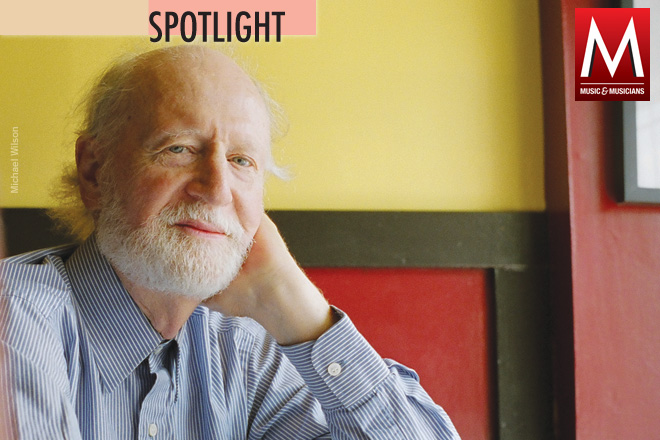MOSE ALLISON
A jazz and blues veteran changes things up—just a little
It makes perfect sense that The Way of the World, Mose Allison’s first new studio album in 12 years, is released on the Anti- label. After all, he has always been an anti- kind of artist: anti-pigeonholing, anti-convention, anti-mainstream. His idiosyncratic songcraft and performance style may have kept Allison from reaching the level of fame enjoyed by many of his peers over the years, but it’s that sense of his own identity that has kept him as vibrant and vital today as when he released his debut, Back Country Suite, in 1957.
The place that Allison occupies—somewhere at the crossroads of jazz and blues—is one that has been visited by dozens of artists eager to cover his compositions since the ’60s, among them the Yardbirds (“I’m Not Talking”), Bonnie Raitt (“Everybody’s Cryin’ Mercy”), the Clash (“Look Here”) and the Who, who raged through Allison’s “Young Man Blues” on their 1970 Live at Leeds album.
Allison’s own piano skills, sardonic lyrics, easygoing vocals and astute outlook are what inspired producer Joe Henry to spend a few years trying to convince him to return to recording. “He wanted to record me, and I didn’t take it seriously,” says Allison, 82, from his home in South Carolina. “But he called me several times, so I finally decided why not? He has a great reputation.”
A mix of original songs and well-chosen covers, The Way of the World will sound instantly familiar to those who’ve already been immersed in the way of Mose Allison’s world. He demands that the listener pay attention, to catch not only his incisive quips but the nuances of his playing. The new album launches with “My Brain,” in which Allison ruminates on the functions of the organ in question, and leaves off with “The New Situation,” an old Buddy Johnson number on which the singer and his daughter Amy Allison duet for the first time. Henry’s arrangements utilize a few sounds, such as mandolin and slide guitar, that are new to Allison’s oeuvre. “It’s completely different from what I normally do,” Allison says. “I usually have the rhythm section playing a different way, but I let Joe decide.”
One thing that hasn’t changed is his method of composition—basically, he doesn’t have one. “These things just come to me,” he says. “That’s the best I can say. I never sat down at the piano and tried to write a song. The song forms in my mind and then I go to the piano.
“I really don’t know what I do,” he adds with a laugh. “But so far, so good.”
–Jeff Tamarkin




comment closed